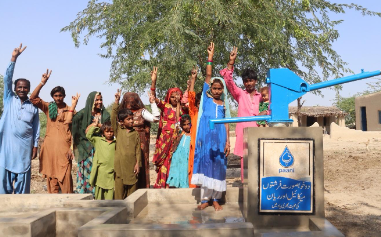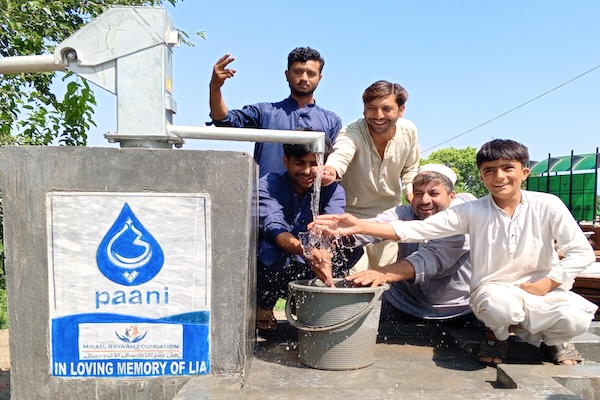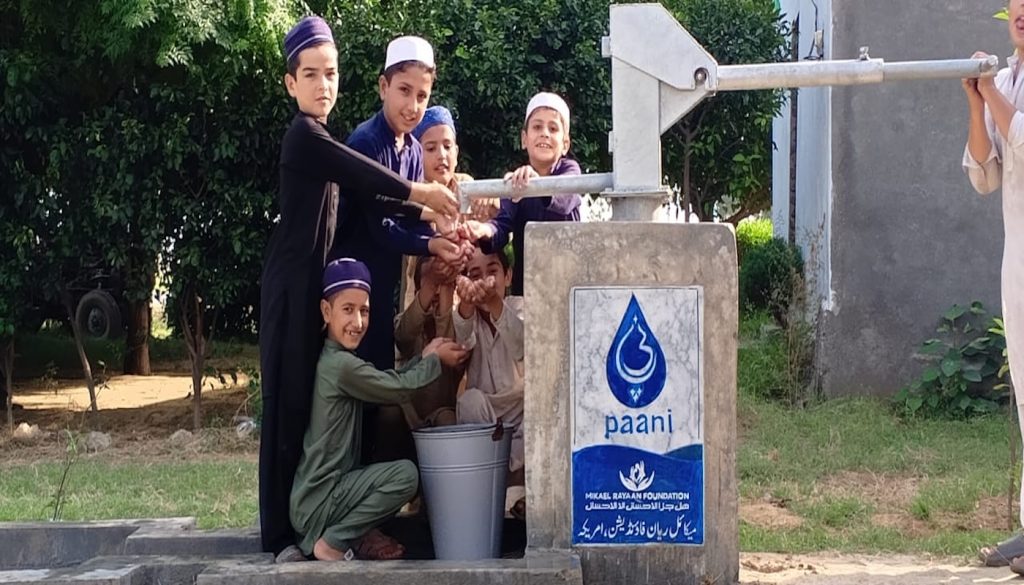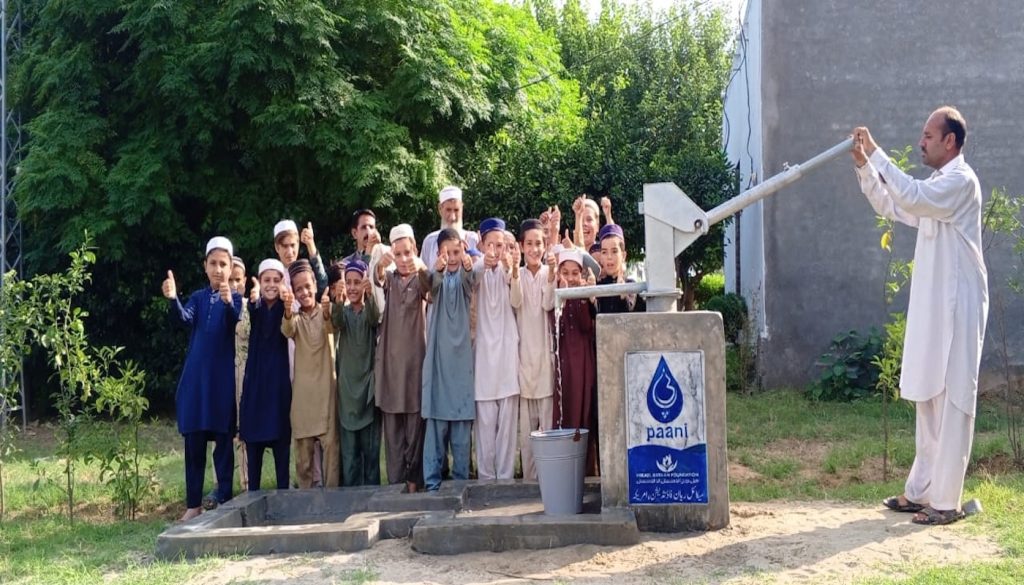Clean Water Project

Clean Water Wells Project, Pakistan
Water scarcity in many Pakistani regions leads to significant health issues and economic hardship. This project aims to install water wells in communities lacking access to clean water in partnership with the Paani Project. In 2023-24, we installed seven deep water wells and three tube wells, benefitting around 2000 people. We plan to install about 10 wells every year. Capacity building, regular monitoring, health education, and fostering community participation are crucial elements of long-term success to improve water security
Introduction:
Access to clean water is a fundamental human right. However, water scarcity in many regions of Pakistan leads to significant health issues and economic hardship. This project aimed to alleviate these problems by installing clean water wells in these underserved communities. We are implementing the Pakistan Water Wells project in collaboration with the Paani Project (a non-profit organization based in the United States).
Mission:
We are committed to provide clean drinking water to underserved communities thereby reducing waterborne diseases and improving child health and enhancing the target communities’ quality of life and socio-economic well-being.
Implementation:
- Location Selection: We strategically select remote rural areas with limited clean water access in Sindh and Khyber Pakhtunkhwa provinces of Pakistan.
- Well Construction: Each well follows engineering standards to guarantee long-term functionality and safety. Optimal depths are reached to access clean ground water.
- Water Quality Testing: Regular water samples are collected and analyzed to ensure the water from the wells consistently meets drinking water safety standards.
- Community Engagement: Local communities actively participate in the projects, from selecting well locations to providing labor during construction, fostering a sense of ownership.
Impact:
Seven deep water wells and three tube wells were successfully installed in 2023-2024, and about 2000 individuals gained access to clean drinking water. These wells also serve about 350 live stock.
Challenges and Sustainability:
Geological challenges during well construction are addressed through adaptable drilling techniques. Permit and approval acquisition involves close collaboration with local authorities. Community participation and ownership are fostered through continuous communication and capacity building. Training sessions on well maintenance and water quality monitoring are provided to community members. Local committees are established to manage well operation and maintenance. Regular monitoring and evaluation will ensure project sustainability.
Conclusion:
This project’s success in installing ten water wells significantly improved access to clean water in underserved Pakistani communities. It not only provided a vital resource but also empowered communities to manage their water security. Ongoing monitoring and community involvement are crucial for the project’s long-term success.




